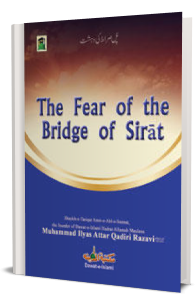
The Role of Sīrah Studies
Mufti Muhammad Qasim Attari
Studying the Prophet’s life is essential for every Muslim. It is not just an academic exercise; it is a crucial religious duty. The revered Prophet صَلَّى الـلّٰـهُ عَلَيْهِ وَاٰلِهٖ وَسَلَّم stands as the very cornerstone of Islam, offering an exemplary and comprehensive model for practical life. Among all figures throughout history, non other can rival the meticulous preservation of the Prophet’s life and every detail of his experiences, behaviour, appearance, and wisdom. As such, his biography, called sīrah in Arabic, illuminates a path of guidance and enlightenment for the entire community of believers, rendering it an unparalleled and indispensable source of inspiration.
Due to the love and devotion of Muslims for the beloved Prophet صَلَّى الـلّٰـهُ عَلَيْهِ وَاٰلِهٖ وَسَلَّم, they sought to remain forever attached to his life example and express their dedication to him. The blessed accounts of the Prophetic biography were to act as an illuminating guide for all Muslims that would come until the Day of Judgement, in fact for all people. For this reason, Allah Almighty preserved the blessed life example of the beloved Prophet صَلَّى الـلّٰـهُ عَلَيْهِ وَاٰلِهٖ وَسَلَّم in such a way that every stage of his noble life is before us like a clear image.
The significance of studying the life of the Prophet remains as crucial in contemporary times as it was in earlier periods. In fact, the need for in-depth exploration and analysis of his life has become even more imperative due to several factors:
A requirement of loving the Messenger صَلَّى الـلّٰـهُ عَلَيْهِ وَاٰلِهٖ وَسَلَّم
Love of the beloved Prophet صَلَّى الـلّٰـهُ عَلَيْهِ وَاٰلِهٖ وَسَلَّم constitutes the very essence of faith. It ignites an ardent passion in the heart, a profound devotion in the soul, and bestows a delightful sweetness upon one’s faith. One of the signs and requirements of love is the study of the Prophetic biography, for whosoever loves someone mentions him in abundance.[1] The noble Companions عَـلَيْهِمُ الرِّضْوَانْ exemplified this deep love, frequently seeking knowledge about the Prophet’s daily life from one another. This remained the practice of their successors too.
It is also apparent from the biographies of the scholars and hadith masters that compiled and taught books of Prophetic biography and hadith that their motivation in these endeavours was love for the Messenger of Allah صَلَّى الـلّٰـهُ عَلَيْهِ وَاٰلِهٖ وَسَلَّم. They considered the time spent in writing and reading about the beloved Prophet صَلَّى الـلّٰـهُ عَلَيْهِ وَاٰلِهٖ وَسَلَّم as the fruit of their life’s work.
A means of increasing in love for the beloved Prophet صَلَّى الـلّٰـهُ عَلَيْهِ وَاٰلِهٖ وَسَلَّم
Love of the Messenger of Allah صَلَّى الـلّٰـهُ عَلَيْهِ وَاٰلِهٖ وَسَلَّم is the foundation of faith. The strength and intensity of this love is the basis of differences in levels of felicity in the court of Allah Almighty. It is necessary that a believer’s heart contain greater love for Allah’s Messenger صَلَّى الـلّٰـهُ عَلَيْهِ وَاٰلِهٖ وَسَلَّم than the rest of creation, even if it is his own mother, father and children. The beloved Prophet صَلَّى الـلّٰـهُ عَلَيْهِ وَاٰلِهٖ وَسَلَّم emphasises that true belief is not complete until one loves him more than their parents, children, and all of humanity.[2] Engaging in the regular study of the Prophetic biography serves as an excellent way to cultivate and intensify this love for him.
A person’s love of an individual increases in accordance with his knowledge of that individual’s lofty characteristics, eminent perfections, specialities, beautiful practices and pure states. This matter has reached a most elevated degree when it comes to studying the Prophetic biography, and this is something witnessed to this day. This is because the Prophetic biography is replete with perfection, beauty and splendour. So, the more a person studies the noble life of the beloved Prophet صَلَّى الـلّٰـهُ عَلَيْهِ وَاٰلِهٖ وَسَلَّم, the further he traverses the stations of Prophetic love.
Understanding the noble Quran is dependent on studying the Prophetic biography
The noble Quran is the constitution for the believers, foundation of the religion, source of divine law, centre of knowledge, fountain spring of wisdom and secret to complete success.
However, to acquire these immense blessings from the Quran, a deep understanding of its message is essential. Studying the Prophetic biography attentively is most beneficial in this regard, as the Quran’s universal and abiding, life-giving message is explained through the Prophetic biography and the sunnah. Sayyidatuna ꜤĀˈishah رَضِیَ الـلّٰـهُ عَنْهَا indicated towards this reality when she stated, “His character was the Quran.”[3] Meaning, the Prophetic biography is the practical translation and exegesis of the noble Quran, for the beloved Prophet صَلَّى الـلّٰـهُ عَلَيْهِ وَاٰلِهٖ وَسَلَّم acted upon its commandments in the most perfect way.
The purpose of the revelation of the Quran is truly manifested through the life of the beloved Prophet صَلَّى الـلّٰـهُ عَلَيْهِ وَاٰلِهٖ وَسَلَّم. The teachings of the Quran are detailed, clarified, and explained through the actions and statements of the beloved Prophet صَلَّى الـلّٰـهُ عَلَيْهِ وَاٰلِهٖ وَسَلَّم; this is commonly expressed as Hadith, sunnah and sīrah. The reason for this is that the Quran is a book of principles, expressing central precepts such as ‘Allah wills ease for you, He does not will hardship’. Yet, detailed application of principles is not mentioned openly.
Similarly, foundational rulings are mentioned in the Quran; their details, however, are not. For example, establishment of salah, fasting, hajj and zakat and other summarised rulings have been mentioned therein. But, the detailed method of acting upon them has not been given. The beloved Prophet صَلَّى الـلّٰـهُ عَلَيْهِ وَاٰلِهٖ وَسَلَّم has clarified the principles, rulings and guidance mentioned within it through his statements and actions, such as the timing, form and order of salah, the method of hajj, specifying the forms of wealth liable to zakat and their amount, etc. Neither can the Quranic injunctions be fulfilled without recourse to the Prophetic biography, nor can the noble Quran be correctly understood without studying it.
Understanding Islam and acting upon the command to obey and emulate the beloved Prophet صَلَّى الـلّٰـهُ عَلَيْهِ وَاٰلِهٖ وَسَلَّم is dependent upon studying the Prophetic biography
It is stated in the Quran:
اَلۡیَوۡمَ اَکۡمَلۡتُ لَکُمۡ دِیۡنَکُمۡ
“This day, I have perfected your religion for you.”[4]
Living a complete and perfect way of life requires the example of a complete, perfect person whose most beautiful, lofty, pure and illuminated biography reflects a complete and perfect image of the perfect religion, allowing people to adopt this as the perfect example in understanding Islam and following it. Most certainly, that most lofty and perfect personality is the beloved Prophet صَلَّى الـلّٰـهُ عَلَيْهِ وَاٰلِهٖ وَسَلَّم, whose life has been described by Allah Almighty as اُسْوَةٌ حَسَنَةٌ “best example” and whose noble character has been declared as خُلُق عظیم “excellent character”. Alongside this is the clear command of the noble Quran:
یٰۤاَیُّہَا الَّذِیۡنَ اٰمَنُوۡۤا اَطِیۡعُوا اللّٰہَ وَ اَطِیۡعُوا الرَّسُوۡلَ
“O you who believe! Obey Allah and obey the Messenger.”[5]
Allah Almighty also states:
قُلۡ اِنۡ کُنۡتُمۡ تُحِبُّوۡنَ اللّٰہَ فَاتَّبِعُوۡنِیۡ
“˹Dear Beloved˺ say: '˹O people!˺ If you love Allah, then follow me.”[6]
The love of Allah, His closeness, His pleasure, and a person's salvation are all intrinsically linked to obedience to and emulation of the beloved Prophet صَلَّى الـلّٰـهُ عَلَيْهِ وَاٰلِهٖ وَسَلَّم. Therefore, the one who seeks success in this world and the Hereafter, it is necessary for him to adopt the path of obeying and emulating the beloved Prophet صَلَّى الـلّٰـهُ عَلَيْهِ وَاٰلِهٖ وَسَلَّم, and that requires knowledge of the sunnah, which is acquired through studying the Prophetic biography.
Studying the Prophetic biography for the rectification of the heart, spiritual perfection and spiritual station
Purification of the soul, rectification of the heart, spiritual virtues, lofty conduct and exemplary character are elevated purposes of life for humans, and something which Allah Almighty demands from His slaves. The Prophetic life is the best example for such a beautiful life:
لَقَدۡ کَانَ لَکُمۡ فِیۡ رَسُوۡلِ اللّٰہِ اُسۡوَۃٌ حَسَنَۃٌ
“Certainly, in the Messenger of Allah you have an exceptional example.”[7]
The place of faith is the heart, and its fruits manifest through spiritual states and outward actions. How should faith and its states be? What should be the states of the heart? What is the meaning of reaching the stations of fear and hope, contentment of the heart, patience, gratitude, reliance, surrender and acceptance of divine decree? Likewise, what is the method of worshipping in the best manner, displaying moderation in dealings, showing good conduct in social interactions, expressing compassion towards acquaintances, having love for one’s household and being merciful towards all of creation?
Studying the Prophetic biography for character building and beautiful conduct
One of the lofty purposes of the beloved Prophet صَلَّى الـلّٰـهُ عَلَيْهِ وَاٰلِهٖ وَسَلَّم being sent forth was to teach and propagate favourable practices, as well as refined and dignified ethics. Just as the beloved Prophet صَلَّى الـلّٰـهُ عَلَيْهِ وَاٰلِهٖ وَسَلَّم said:
بُعِثْتُ لِاُتَمِّمَ مَکَارِمَ الْاَخْلَاق
“I have been sent for the perfection of good character.”[8]
The immaculate character of the beloved Prophet صَلَّى الـلّٰـهُ عَلَيْهِ وَاٰلِهٖ وَسَلَّم was so exemplary, endearing, favourable and excellent that Allah Almighty Himself declared its excellence in the noble Quran:
وَ اِنَّکَ لَعَلٰی خُلُقٍ عَظِیۡمٍ (۴)
“and you possess an impeccable character.”[9]
The beloved Prophet صَلَّى
الـلّٰـهُ عَلَيْهِ وَاٰلِهٖ وَسَلَّم encompassed all
facets of noble character. He embodied the highest possible degrees of
chivalry, forbearance, clemency, mercy, generosity, justice, altruism,
hospitality, honesty, fairness, eloquence, empathy, care, modesty, and humbleness.
All these virtues are a means of honour for a person, and it is necessary and beneficial that every person adopt them, as the beautification of one’s personal and societal life is contained in these. It is self-evident that knowledge is a perquisite for action, and knowledge in turn requires detailed, encompassing and practical teachings, for which better guidance than the pristine biography and statements of the beloved Prophet صَلَّى الـلّٰـهُ عَلَيْهِ وَاٰلِهٖ وَسَلَّم cannot be found.
Importance of studying the Prophetic biography for propagating Islam internationally
Studying the Prophet’s life holds a significant motive and purpose: to accurately present Islam on a global scale, as commanded by Allah Almighty and required by our faith. This cannot be done without introducing the beloved Prophet صَلَّى الـلّٰـهُ عَلَيْهِ وَاٰلِهٖ وَسَلَّم in detail, for he is the greatest recognition of Islam and its central personality. Islam cannot exist without the personage of the beloved Prophet صَلَّى الـلّٰـهُ عَلَيْهِ وَاٰلِهٖ وَسَلَّم.
The Quranic revelation is tied to events in the Prophet’s life, just as his life explains Allah’s Book. The teachings of Islam revolve around the Prophetic biography and the beauty of Islam is revealed through its splendour. Furthermore, the hearts of people are more drawn towards the conduct and personality of the one that presents the teachings rather than teachings alone.
Recounting the lofty events from the noble life of the beloved Prophet صَلَّى الـلّٰـهُ عَلَيْهِ وَاٰلِهٖ وَسَلَّم and its wisdom-filled states, and speaking about the beloved Prophet’s impeccable conduct, unparalleled leadership and grand achievements play the most important role in convincing others. Therefore, the best means of propagating Islam on an international stage is to narrate the Prophetic biography.
[1] Kanz al-ꜤUmmāl, vol. 1, p. 425
[2] Ṣaḥīḥ al-Bukhāri, vol. 1, p. 17
[3] Musnad Imām Aḥmad, vol. 43, p. 15
[4] Al-Quran, 5:3, Translation from Kanz al-ʿIrfān
[5] Al-Quran, 4:59, Translation from Kanz al-ʿIrfān
[6] Al-Quran, 3:31, Translation from Kanz al-ʿIrfān
[7] Al-Quran, 33:21, Translation from Kanz al-ʿIrfān
[8] Nawadir al-Usool: 1425
[9] Al-Quran, 68:4, Translation from Kanz al-ʿIrfān

















Comments